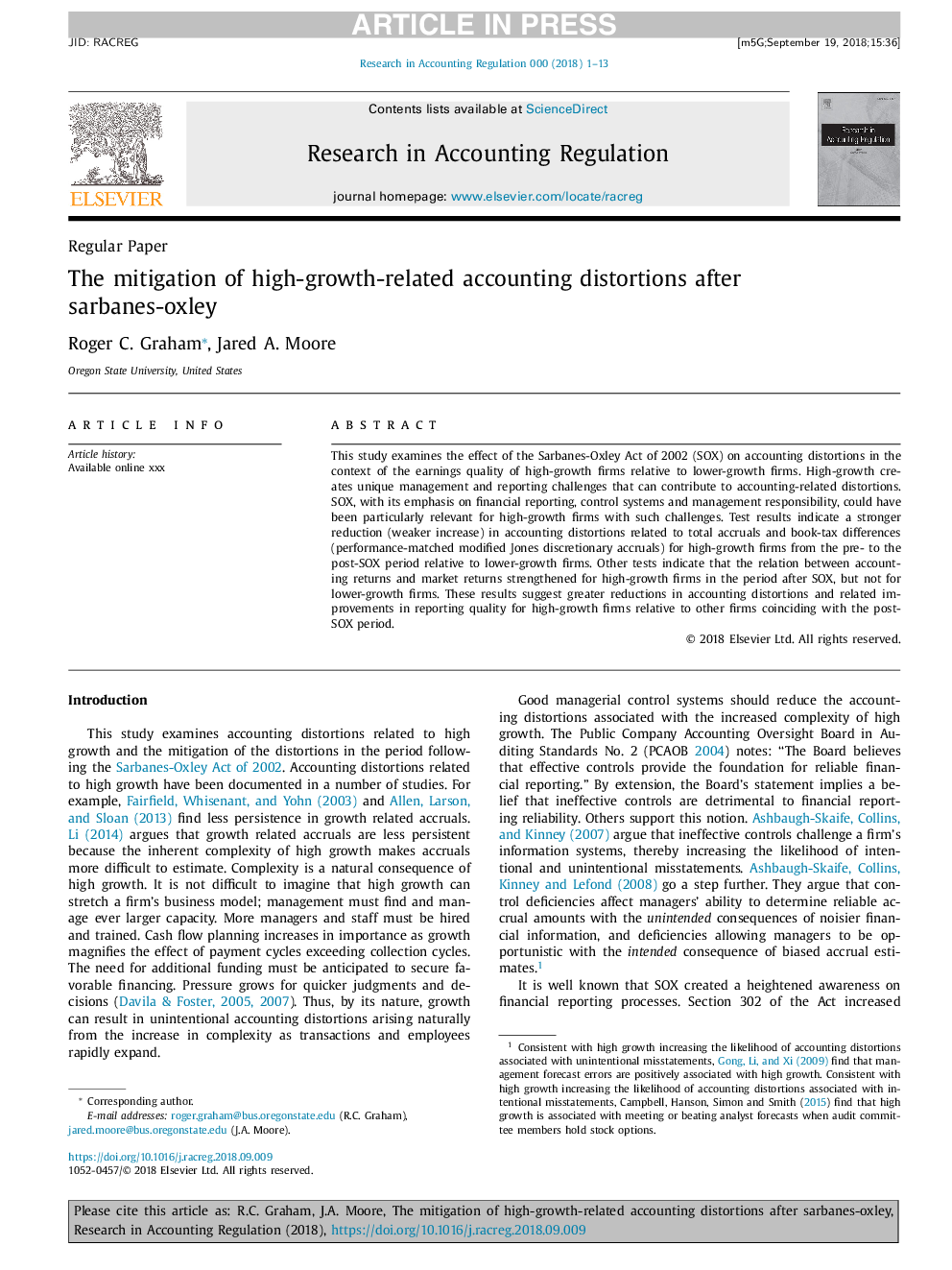| Article ID | Journal | Published Year | Pages | File Type |
|---|---|---|---|---|
| 11020432 | Research in Accounting Regulation | 2018 | 13 Pages |
Abstract
This study examines the effect of the Sarbanes-Oxley Act of 2002 (SOX) on accounting distortions in the context of the earnings quality of high-growth firms relative to lower-growth firms. High-growth creates unique management and reporting challenges that can contribute to accounting-related distortions. SOX, with its emphasis on financial reporting, control systems and management responsibility, could have been particularly relevant for high-growth firms with such challenges. Test results indicate a stronger reduction (weaker increase) in accounting distortions related to total accruals and book-tax differences (performance-matched modified Jones discretionary accruals) for high-growth firms from the pre- to the post-SOX period relative to lower-growth firms. Other tests indicate that the relation between accounting returns and market returns strengthened for high-growth firms in the period after SOX, but not for lower-growth firms. These results suggest greater reductions in accounting distortions and related improvements in reporting quality for high-growth firms relative to other firms coinciding with the post-SOX period.
Related Topics
Social Sciences and Humanities
Business, Management and Accounting
Accounting
Authors
Roger C. Graham, Jared A. Moore,
